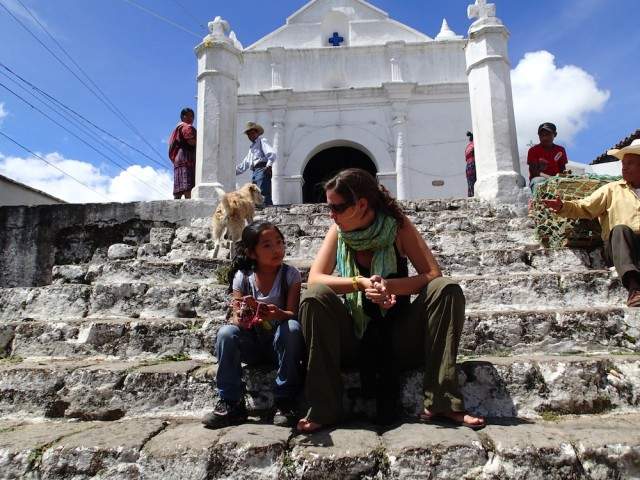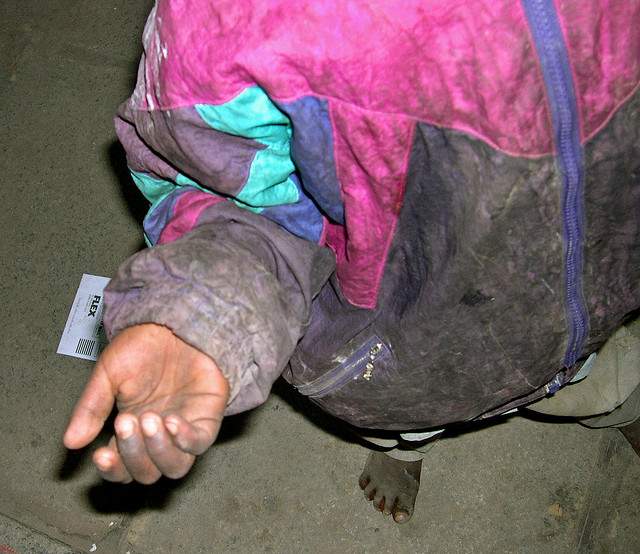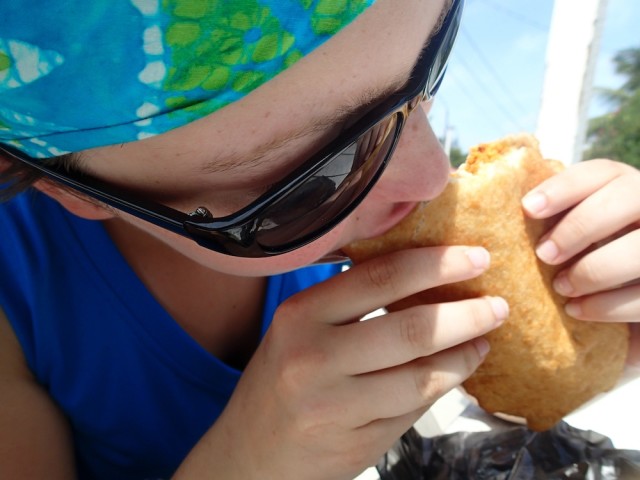As soon as you say that you are embarking on an around the world journey, everyone – from governments to grandmas – chimes in with their offering of “rules” for safe, enjoyable travel.
But is the notion that there are “rules” to follow actually ruining the travel experience?
We’ve all done it: scrolled through blogs, websites, and guidebooks looking for the smart traveler rules that will offer security and a sense of awareness to our journey. We buy money belts and practice our get-away-from-me-right-now scowls. But the truth about travel is that, like life, there simply is no formula and no amount of rules that could possibly fit every single scenario.
But we all know that. We all know that we make exceptions to those rules on a pretty regular basis. Why? Because judgement and circumstance come into play far more than most rule makers care to admit.
But the truth about travel is that, like life, there simply is no formula and no amount of rules that could possibly fit every single scenario.
What if by perpetuating the notion that there are fool proof rules to travel, we are actually ruining our own experiences?
The difference between rules and knowledge

It seems to me that that there is a difference between “rules” and the acquisition of knowledge pertinent to the locale you are exploring. On any long journey, you are likely to meet a traveler or two who has packed a long list of rules into their backpack.
They might not eat street food, give to beggars, buy anything from a child under the age of 16, take public transportation, or walk anywhere at night. Mostly the rules come from others, and the traveler himself does not always have any first hand knowledge of why they follow these rules. It’s all theoretical and based on the idea that it’s “better to be safe than sorry.” They have internalized the “rules” before they have internalized the experience of being where they are, right now.
On some level, the rules make sense, of course. But what would be so much more beneficial than a list of “nevers” is a working knowledge of the local area and culture. For example, bhel puri is a street food easily found along the beaches of Mumbai. Instead of avoiding it due to a rule about street food, why not get your bearings for a few days and then ask a few locals where their favorite bhel puri stand is? After all, a local is not likely to frequent any food stall that makes them sick.
In other scenarios, how about checking to see how much frying or boiling is required to kill any bugs you might be concerned about and then choosing to eat from street food stalls that will fry or boil your treat right before you eat it? Knowledge can help you dig in to the experience a little more, instead of fearfully looking on with your list of rules tucked in your back pocket. And let’s be honest, street food is the best food in certain parts of the world.
“Real” Travel Rules
We all know about the official travel “guidelines” (i.e. rules) our governments put out, and many experienced travelers take these with a huge grain of salt. But what about rules from other travelers? Surely those are worth adding to the list? Those tried and true rules are the “real” rules, right? The ones we trust
Knowledge from other travelers can, without a doubt, be informative and enlightening. Their rules can also be stifling and judgmental. How many times have you heard the phrase “real travel” or “I’m a traveler, not a tourist, so……”
The rules offered by fellow travelers may sound different, but they are still given with the intention of offering blanket solutions to general challenges you often haven’t even encountered yet.
Particularly if you’re a newbie traveler (we all have been one at some point), you don’t want to be labeled as not being a “real” traveler, and so the push to subscribe to your fellow traveler’s “rules” becomes all the more intense. The rules offered by fellow travelers may sound different, but they are still given with the intention of offering blanket solutions to general challenges you often haven’t even encountered yet- all wrapped up in an assumption of what “real” travel looks like.
Offering rules to others as a guide for how to be a “real” traveler is, honestly, absurd. What is “real” travel or “authentic” travel? How can anyone who claims to be a “real” traveler believe that any rule can possibly cover all scenarios? I have been told that I am not a “real” traveler (by fellow travelers) for NOT eating street food, for buying a pack of gum from a seven year old, for deciding not to take the local bus, and for dropping a coin in a beggar’s cup.
It doesn’t really matter what my reasoning was, breaking the rules and can get you stripped of your “real traveler” card.
This doesn’t mean withholding information about potential dangers, it means resisting the urge to act as an authority and hit them with every tried and true rule you can come up with.
When we offer long lists of rules to new travelers, we are limiting their ability to experience and learn for themselves. This doesn’t mean withholding information about potential dangers, it means resisting the urge to act as an authority and hit them with every tried and true rule you can come up with. We shouldn’t stand in the way of someone else’s experience and truth by insisting our rules are the “real” way to do it. Those “rules” aren’t rules. They are solutions to challenges that worked out in the moment, in the environment, and in the culture that was presented at the time.
The most important “rule” is to trust your gut

Most people who embark on a long-term journey at some point believed in the “rules” they grew up hearing – do well in school, go to college, start your career, get married, buy a house, have kids.
If that is the case, then why insist on a set or rules for travel, thereby re-creating the very notion most of us deemed “not for us” when we took off in the first place?
At some point the long-term traveler realized those “rules” are something of a mirage, a prescribed path that may or may not suit each individual. If that is the case, then why insist on a set or rules for travel, thereby re-creating the very notion most of us deemed “not for us” when we took off in the first place? Perhaps we should be thinking broader and considering general codes of ethics or focusing simply on exchanging and providing local and cultural specific knowledge that others can incorporate into their decision making.
Any long term traveler will tell you that every single moment has the potential to offer up a new and perplexing challenge. Rules look good on paper, but they rarely dig deep enough to really point to the “right” decision. Sometimes, those rules even go against our internal voices and our ethics.
So, what to do?
Trust your gut. Consider your knowledge of the greater culture and the moment you are standing in. Consider your bigger impact more and worry less about breaking an established “rule.” Let the rules go and think broader. Remember, you are where you are for a reason, and it’s not to follow a set of perfectly packed rules.
Read more about the idea of traveling a certain way being the “right” way:
- Why I Hate the Term “Authentic Travel”
- One Life is Not Better Than Another
- Stupid Travel Arguments (And Why We Should Stop Having Them)
- Cheap Travel vs. Budget Travel: There’s a Difference
Photo credits: Kyle Lease, all other photos courtesy of the author and may not be used without permission.

